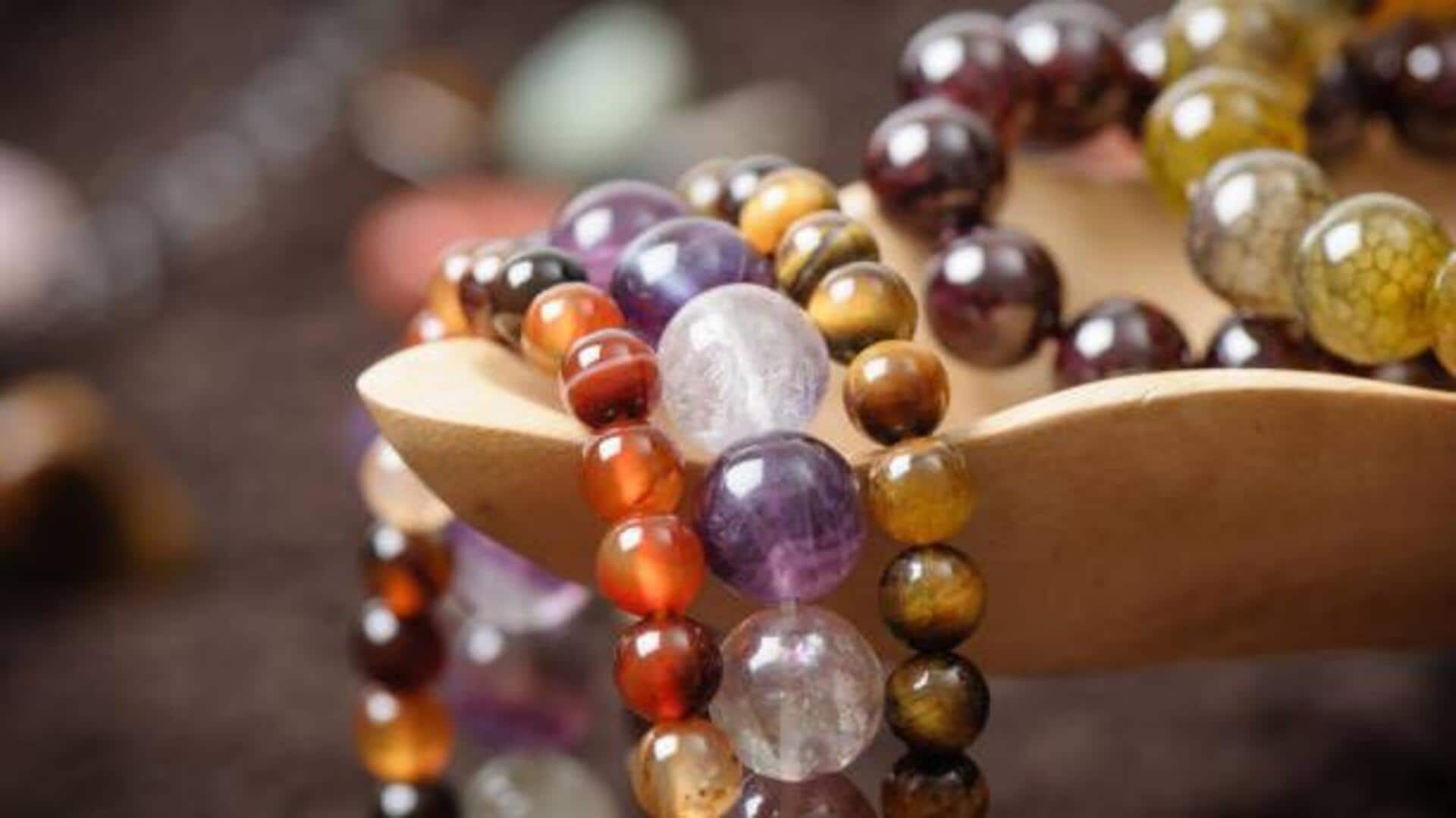
These jewelry styles are worth exploring!
What's the story
African jewelry is a colorful representation of cultural heritage, showcasing the rich traditions and histories of the continent. Each piece narrates a tale, often representing social status, spiritual beliefs, or historical occurrences. From elaborate beadwork to striking metal designs, these jewelry styles are not just stunning but also hold profound cultural importance. Here are five unique African jewelry styles that capture the rich cultural diversity of Africa.
#1
Maasai beadwork
Maasai beadwork is famous for its vivid and intricate designs. Hailing from the Maasai people of Kenya and Tanzania, the style employs beads to craft necklaces, bracelets, and earrings that denote age, marital status, and social position. Each of the colors used in Maasai beadwork has its own significance; red denotes bravery, while blue indicates energy. These pieces are typically worn during ceremonies and celebrations.
#2
Tuareg silver jewelry
The Tuareg people of North Africa are also famously known for their exquisite silver jewelry. Crafted by skilled artisans called ineslmen, these pieces include rings, pendants, and bracelets adorned with geometric patterns and symbols unique to Tuareg culture. Silver is preferred over gold due to its association with purity in Tuareg tradition. The jewelry often also serves as protective amulets or symbols of identity within the community.
#3
Zulu beaded necklaces
Zulu beaded necklaces are an essential element of South Africa's Zulu culture. The necklaces are beautifully patterned with small glass beads threaded together, meticulously. The patterns are used to communicate messages of love or family ties through colors and arrangements. Traditionally, women wore them on special occasions such as weddings or festivals, they are still loved as symbols of cultural pride today.
#4
Fulani gold earrings
Fulani gold earrings are also unique for their signature crescent shape embellished with detailed engravings on either side—a signature design among West African communities (such as Mali's Fulani tribe) who have been making them since ancient times. Using the same traditional techniques from generations ago, these earrings remain a favorite among those looking for authentic ethnic adornments across the globe.
#5
Ethiopian cross pendants
Ethiopian cross pendants are steeped in religious meaning across Ethiopia's Christian communities, where they are used for decorative and spiritual purposes as well. Mostly made of silver (sometimes brass, depending on the availability of locally sourced material at the time), these crosses vary in shape and size, with each representing different facets of faith practiced there centuries ago, and still in use among believers everywhere, irrespective of where they are around the world today.